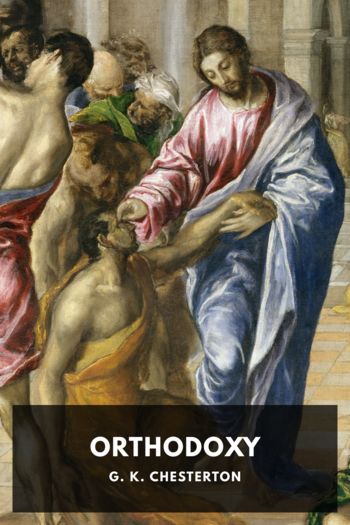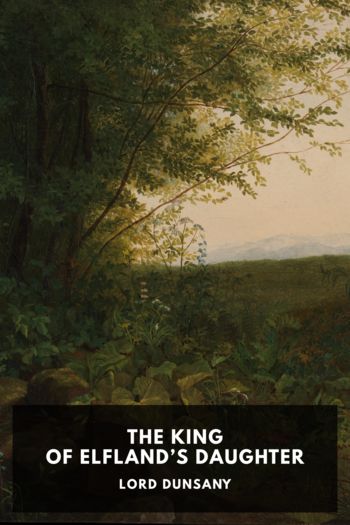Orthodoxy, G. K. Chesterton [best way to read e books txt] 📗

- Author: G. K. Chesterton
Book online «Orthodoxy, G. K. Chesterton [best way to read e books txt] 📗». Author G. K. Chesterton
Much vague and sentimental journalism has been poured out to the effect that Christianity is akin to democracy, and most of it is scarcely strong or clear enough to refute the fact that the two things have often quarrelled. The real ground upon which Christianity and democracy are one is very much deeper. The one specially and peculiarly unchristian idea is the idea of Carlyle—the idea that the man should rule who feels that he can rule. Whatever else is Christian, this is heathen. If our faith comments on government at all, its comment must be this—that the man should rule who does not think that he can rule. Carlyle’s hero may say, “I will be king”; but the Christian saint must say, “Nolo episcopari.” If the great paradox of Christianity means anything, it means this—that we must take the crown in our hands, and go hunting in dry places and dark corners of the earth until we find the one man who feels himself unfit to wear it. Carlyle was quite wrong; we have not got to crown the exceptional man who knows he can rule. Rather we must crown the much more exceptional man who knows he can’t.
Now, this is one of the two or three vital defences of working democracy. The mere machinery of voting is not democracy, though at present it is not easy to effect any simpler democratic method. But even the machinery of voting is profoundly Christian in this practical sense—that it is an attempt to get at the opinion of those who would be too modest to offer it. It is a mystical adventure; it is specially trusting those who do not trust themselves. That enigma is strictly peculiar to Christendom. There is nothing really humble about the abnegation of the Buddhist; the mild Hindu is mild, but he is not meek. But there is something psychologically Christian about the idea of seeking for the opinion of the obscure rather than taking the obvious course of accepting the opinion of the prominent. To say that voting is particularly Christian may seem somewhat curious. To say that canvassing is Christian may seem quite crazy. But canvassing is very Christian in its primary idea. It is encouraging the humble; it is saying to the modest man, “Friend, go up higher.” Or if there is some slight defect in canvassing, that is in its perfect and rounded piety, it is only because it may possibly neglect to encourage the modesty of the canvasser.
Aristocracy is not an institution: aristocracy is a sin; generally a very venial one. It is merely the drift or slide of men into a sort of natural pomposity and praise of the powerful, which is the most easy and obvious affair in the world.
It is one of the hundred answers to the fugitive perversion of modern “force” that the promptest and boldest agencies are also the most fragile or full of sensibility. The swiftest things are the softest things. A bird is active, because a bird is soft. A stone is helpless, because a stone is hard. The stone must by its own nature go downwards, because hardness is weakness. The bird can of its nature go upwards, because fragility is force. In perfect force there is a kind of frivolity, an airiness that can maintain itself in the air. Modern investigators of miraculous history have solemnly admitted that a characteristic of the great saints





Comments (0)